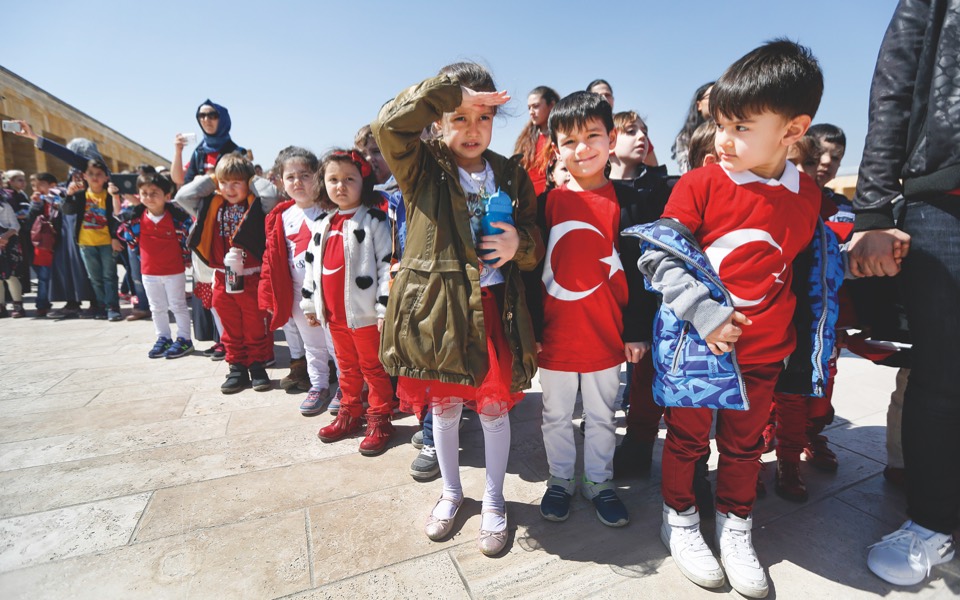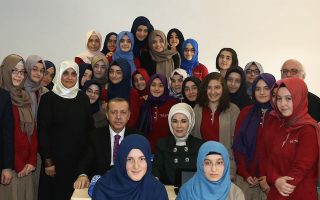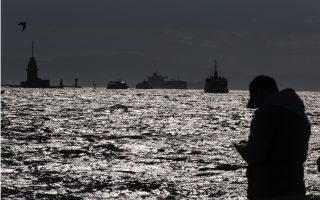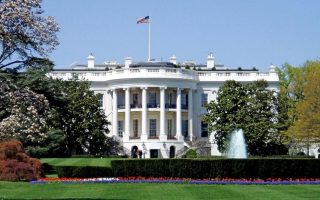Encroachment of Pan-Turkism in education

Pan-Turkism, neo-Ottomanism and Turkey’s global dominance: By the 2050s, 40-year-old Turks may have grown up in an environment of consistent repetition of these three philosophical principles combining nationalism and nationalist Islamism as a result of institutional interventions in school textbooks after 2016. This has not been a sudden shift, but rather the acceleration of a pre-existing trend. An ideological mix of Islamism and nationalism began to slowly and steadily invade Turkish elementary and high school education as early as the 1990s and continued following the victory of Recep Tayyip Erdogan’s Justice and Development Party (AKP) in the 2002 elections.
However, the abortive 2016 coup unleashed all the Turkish politicians, intellectuals and educators who promote the creation of a new hardline Turkish national consciousness, with vision and faith in Turkish superiority over other peoples and cultures on an international level. The motive is simultaneously political and messianic. Erdogan doesn’t just want to impose himself on the present day, but to change the historical trajectory of the country. By changing the way Turks define themselves, the dual goal of reviving a neo-Ottoman national and religious consciousness with elements of imperial self-confidence and the parallel consigning of the first 100 years of a secular democracy with European characteristics to a historical blip is reinforced.
All of this is portrayed in a report into 28 Turkish textbooks that were published over the last two years, following in-depth reviews and updates following the 2016 coup attempt. The report is titled “The Erdogan Revolution in the Turkish Curriculum Textbooks.” It was released a few weeks ago by an Israeli institution and a British think tank and reveals that Turkey has now surpassed Saudi Arabia as the center of criticism leveled against the West, especially when it comes to the spread of nationalist messages, with a veneer of historicism and patriotism, that legitimize and strengthen discriminatory and intolerant ideas. The Israeli Institute for Monitoring Peace and Cultural Tolerance in School Education (IMPACT-SE) and the British Henry Jackson Society think tank conclude that the Turkish educational system, which until recently was a leading example in the Islamic world for its secular approach as it combined teaching tolerance for minorities and recognized Kurdish as a minority language, has regressed into a consistently positive depiction of principles and concepts including holy war (jihad), the martyrdom of soldiers who die in battle, as well as the emergence of neo-Ottomanism and pan-Turkism as guiding nationalist and religious world theories.
The report also states that, in terms of religious education, the Turkish school curriculum looks solely to the teachings of Sunni Islam and fosters a sympathetic outlook on the motives of the so-called Islamic State (ISIS) and Al-Qaeda. Despite the shifts that had already taken place after 2002, the changes observed over the last three years represent the first true intervention in school textbooks that took place during the Erdogan years. “Changes in the educational system are the most serious aspect of the Erdogan years in Turkey’s domestic policy,” says author and analyst Soner Cagaptay, head of the Turkish Research Program at the Washington Institute. “In my opinion, the reason Turkey was so successful in functioning as a secular society, and not defined by religious fundamentalism, was the existence of a secular public education system. Over these last years, this system has been weakened.”
The moderate analysts remain cautious over the scale of Erdogan’s ambitions and converge toward an estimation that the Turkish president is trying to keep a tenuous balance between Western demands for the restoration of democratic principles and freedoms and the hard stance and position he has to support if he wants to establish a leading role for Turkey in global Islam, which includes Saudi Arabia, the United Arab Emirates, Iran and Indonesia. It is noted that Erdogan continues to support the Muslim Brotherhood, who relocated to Istanbul following their flight from Egypt in 2013, even if the Turkish authorities recently asked three television networks headquartered in Istanbul that are friendly to the Brotherhood to moderate the tone of their criticism of the Egyptian government.
‘Pious Turks’
The changes made by the Turkish president to school textbooks seek not only to further the goal of raising a new generation of “pious Turks” but also to establish his position in the minds of adherents to Sunni Islam across the globe. However, as noted in an article by James Dorsey, senior associate at the Israeli Begin-Sadat Center for Strategic Studies (BESA), “references in Turkish schoolbooks to Jews and Christians as infidels rather than the common reference, ‘People of the Book,’ may go down well with segments of Muslim public opinion but call into question [Erdogan’s] efforts to dial down the rhetoric and appear more cooperative and constructive.”
And despite positive references to Judaism and Jewish culture in the new textbooks, including mentioning the Holocaust for the first time, these books are a stark contrast with the new atmosphere of positive reform that has lately defined education in Saudi Arabia, Indonesia and the UAE. Marcus Sheff, chief executive officer of IMPACT-SE, stresses that “the idea that jihad is today a part of the Turkish educational program that idealizes the idea of martyrdom in battle may be in line with what we already know of Erdogan but continues to be a shock.”
Aspirations for global role
The synthesis of pan-Turkism with neo-Ottomanism reveals that an important section of Turkey’s leadership today believes that it leads or that it should lead the international Islamic community. This tendency was faintly expressed following the fall of the Soviet Union in 1991, when maps showing the wider Turkish-Asiatic arc appeared for the first time and concerned nations that had been part of the Soviet Union and developed into independent nation-states. It essentially appeared in 2015, when Erdogan began cooperating with Devlet Bahceli’s far-right Nationalist Movement Party (MHP), and was accelerated after 2016.
Pan-Turkism is a political and nationalist utopia. Through references to the political and administrative history of the Ottoman Empire, a vision is expressed in which the world is better when the Turkish nation plays a leading role. To this ambition is added neo-Ottomanism. The two ideals are complementary as neo-Ottomanism offers cultural substance to the political vision of Pan-Turkism. It states that Ottoman culture was expanded after the adoption of Islam by the Turks and extends from Western China and Siberia to Bosnia. Islam is upgraded to an indivisible part of national identity. It is an attempt to rebuild and remodel an older version of national identity that was abandoned by Kemalism. The tendency toward a Turkish exceptionalism that resists “integration” into the Western framework is powerful and clearly expressed by Erdogan, even if the “European response” is equally powerful in Turkish society.
In this framework, there is a strong presence of the concept of jihad (holy war) and Sharia law in Turkish textbooks. This must not be misinterpreted as suggesting that Sharia law in its entirety is being introduced, nor that most Turks accept it in its entirety. Nor does Sharia simply mean “corporal punishment,” as is believed by some in the West. It is a versatile set of rules, with some upheld and others ignored. Few Muslims – only the very pious – apply Sharia law in its entirety, as can happen in other religions where similar minorities adhere to the stricter tenets. However, the increased relevance of Sharia law in the until recently secular Turkish republic raises eyebrows, as would be the case if the Greek education system started focusing on the Old Testament.
Along with the removal of chapters on Darwin’s theory of evolution from Turkish high school books, students are taught that an adherent of Islam cannot be truly pious unless they fight for their religion. Of course, as shocking as this may seem to the West, we must remember that similar connections between gods, saints, warfare and battle have been seen through the ages in all countries and civilizations (and not just the Crusades). Of course, Turkey is currently going through a period in which these connections are highlighted, while at the same time these semantics have been faltering in Europe and Greece, without being abandoned, however.
The main goal of the architects of Ankara’s new educational policy is the unification of religion and nationalism with the purpose of instilling a national consciousness, with nationalistic elements, in a new generation. This is exactly why the concept of jihad is not limited to religion but acquires a nationalist dimension as it includes “defense of the homeland.” The “Turkish Culture Basin” is defined as an area from Central Asia to the Adriatic. Turkish sovereignty is implicitly and carefully expressed as it is linked to the imprint of Ottoman civilization over the last six centuries.
In Greece, where we often establish the Greek imprint going back millennia on all of the Western world, maybe it should not be considered incomprehensible that the Turks are attempting to track their presence in a necessarily shorter time and space as the reach and the magnitude of the history of the Ottoman civilization (or almost any other) is clearly not similar to that of Greek culture. Greek and Greco-Christian civilization has indelibly marked the Ionian coast and the Dardanelles (from the Sumela Monastery in Trabzon to the Ecumenical Patriarchate of Constantinople and the Library of Celsus), even if these particular imprints from the civilization between the two cultures in the geographical area of modern Turkey could not be at the forefront of today’s Turkish educational policy.
There is also no attention paid to the important Greek role in the administration of the empire, especially during the zenith of its first centuries. However, there is also the negative shift of the Kurdish language no longer being offered as an option in most Turkish schools, while the educational system ranks citizens in three distinct categories: the pious (Muslims), the hypocrites (Muslims who besiege the pious with temptation) and the infidels (all non-Muslims).
Finally, the first week of every academic year is dedicated to the condemnation of the 2016 coup attempt and its failure is celebrated with readings selected from literature, history, and social and religious studies.
The Greeks
“Turks in Greece” is the rather foreseeable name and description of the Greek Islamic minority that live in Thrace written on pages 179-180 of the “Contemporary Turkish and International History” textbook. It first presents the Turkish approach on the life of the Greek Islamic minority during the 1960-80 period. It states that the Greek state had rescinded Greek nationality from all those of Turkish descent. The politics that were put in effect at the time are displayed through a prism of increasing tension.
Athens is presented as an autocratic centralized authority that is accused of forbidding Greek Muslims from buying or renting real estate, being hostile to the Turkish language, encircling the so-called “Turkish villages,” imposing harsh taxes and seizing properties. The Istanbul pogrom against the city’s Greek community in 1955 does not appear at all.
According to the report by the British and Israeli institutes, the constant remarks on the conflict between Greece and Turkey, with Cyprus at the epicenter, have not changed at all and are maintained in new editions of the book.
The inclusion in the “Contemporary History” textbook of a description of the United States as a “supporter-state of terrorism” has also drawn attention. Washington “earned this honor” by supporting the Syrian Kurds. This is the first time the US has been referred to negatively in a Turkish educational textbook.





